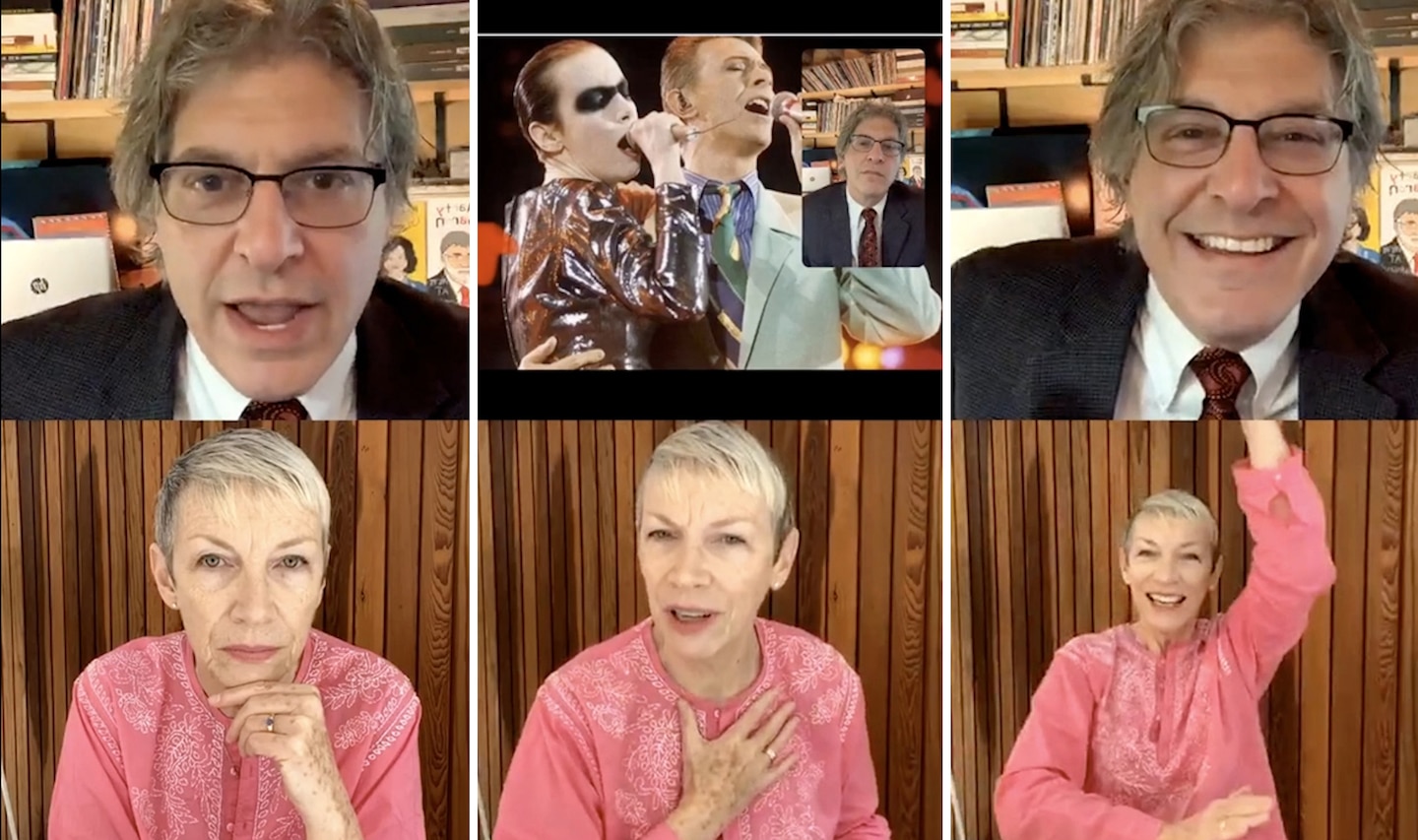Q&A with Annie Lennox: Why the singer doesn’t listen to music
[ad_1]
(This interview has been edited for length and clarity.)
Q: I don’t know about you, but I listen to some songs now and I feel incredibly connected to them. Warren Zevon has a song called “Desperados Under the Eaves.” It’s just about a sad guy in a motel in California, and it feels crushing in a way it didn’t a few months ago. Do you find it healing or helpful to listen to music you love right now?
A: It’s a strange thing. People ask me this quite frequently. What are you listening to? I don’t really listen to music. It’s a strange thing to say and I can’t explain, I can’t justify it. Yes, music is very powerful. And to me, I have a jukebox in my head. There are so many songs floating around in my head. I’m a performer, so I make music. I kind of stopped listening at a certain point. I just used to kind of listen to like a Tibetan bell, just the singular tune. You know what, that’s where I want to be.
Q: When we last talked, it was about Aretha Franklin and you said you loved her music. Don’t you ever feel a nostalgic urge to listen?
A: I guess if someone put it on, and I’ll go, “Yes. I love that song.” I don’t know what to tell you. I know it’s really bizarre. It’s weird.
Q: You listened to music growing up, didn’t you?
A: Yes, but it was so, so different. Again, it’s like this minimalistic thing. I come from, this sounds a bit old-fashioned to say, I’m from a working-class background. So it was a time when there was very little. We were not impoverished. I’ve seen what poverty really is. But my father had to work in the shipyards to make sure the rent was paid, the food was on the table. So, I mean, we did have a television, black-and-white. And I think I had a little transistor radio. We listened to what we call Radio One, and it would play the Top 20. So there was a lot of music going on from that transistor radio. And what I saw on television, it was very lo-fi.
Q: I was 13 years old when “Sweet Dreams” came out. The image of you and the sound of that song, and everything that you did from that point on, was really revolutionary.
A: Dave [Stewart] and I wrote that song in 1982. That’s a long time ago now, but it’s been a thread that’s just continued through the decades in various ways, because people have done remixes and different versions. But it’s still fresh because I think it was a visionary statement of its time. The thing about Eurythmics music is that there was a kind of surreal, existential twist in the lyrical content and also in some of the ways that we presented ourselves. We were shape-shifters. We didn’t belong. We were outsiders. We didn’t belong to a group that’s, you know, “Okay, I’m in a rock band. I’m heavy metal.”
We were on a kind of pop platform, but it was subversive at the same time. And the humor between Dave and me — it had a lot of twists in it. British humor is like that. There’s a lot of nuance and subtlety and double-entendre. So, you know, I think from an American perspective, sometimes that was maybe hard to get.
But “Sweet Dreams” is really the world we’re living in right now. And it’s like, “Oh, my God, how do we coexist?” Now we’re at a standstill. It does give us a moment to pause and be more introspective. But you know what? When the doors are open wide, it’ll be business as usual just with a twist, and the next pandemic comes. I’m sorry to say this, but I know for sure there’ll be another pandemic. It’ll be worse. And that’s a horrible thing to say. I hate to say it, but it’s kind of true. I could cry and laugh at the same time.
[ad_2]
Source link
